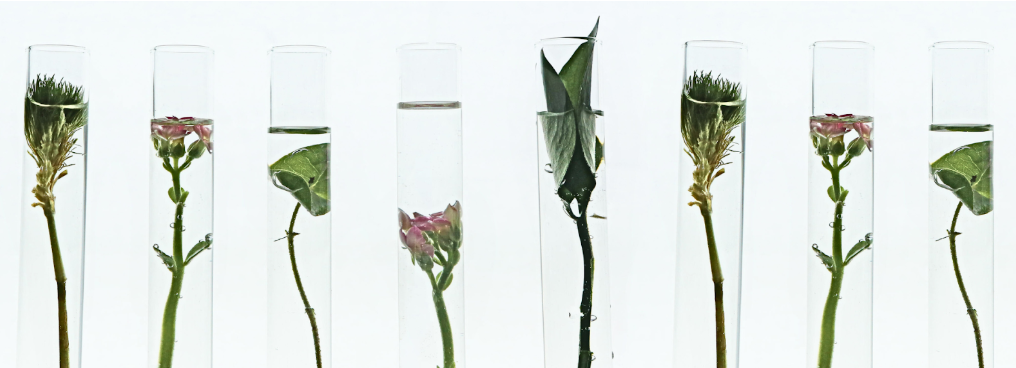Equip is a virtual eating disorder treatment program built by clinical experts in the field and people who’ve been there. By providing a dedicated, 5-person care team, Equip delivers at-home, evidence-based treatment to patients of all ages. Equip also offers a free resource hub for individuals and families affected by eating disorders.
When Equip Peer Mentor Stacy Jones first started eating disorder treatment, she was hesitant to ask her friends and family to be involved in the recovery process. “I felt shame around my eating disorder and wasn’t sure how the people in my life would react,” Jones says.
The hesitation she felt is an unfortunate but common consequence of pervasive stereotypes around who gets eating disorders. While many people associate eating disorders with adolescents and teenagers, the reality is that they don’t discriminate based on age. While the average age of onset for binge eating disorder (BED) is 21 years old, it affects people of all ages, including older adults.
Adults may feel less comfortable seeking support from friends and family members for a number of reasons. And depending on where they receive care, their treatment team may not encourage it. But many, like Jones, have found that leaning on others throughout treatment can make all the difference in long-lasting success—and there’s evidence to support this.
Why social support can be essential in adult treatment
According to Equip therapist Danielle Shlomo, LMSW, having a strong support network can be essential for helping someone initiate change, especially if their own internal beliefs still align with those of the eating disorder. External support can also “foster a positive environment for the person struggling, alleviating the sense of isolation in their journey,” she says.
While family-based treatment (FBT) typically involves a young patient’s close family members or caretakers, adults with eating disorders can bolster their treatment with a variety of key players, including relatives, friends, romantic partners, and more. That often means integrating these loved ones into the modalities proven to treat eating disorders in adults, like enhanced cognitive behavioral therapy (CBT-E), and dialectical behavioral therapy (DBT).
One study exploring this topic found that the inclusion of family members in just one therapeutic session can improve the rate of recovery in adults.1 A qualitative analysis found that eating disorder patients frequently cited certain qualities in their romantic partners to be important to their recovery, including patience, compassion, and flexibility.2 Another study found social support to be integral in adult recovery, and that this support often extended beyond family to include friends, colleagues, and neighbors.3
How loved ones can be involved in adult treatment
There are several impactful things that friends, parents, siblings, romantic partners, and other connections can do to have a positive effect on recovery. Here are just a few suggestions on ways loved ones can be involved in treatment:
- Sharing meals together in person or virtually
- Assisting with weekly weight and vital checks
- Providing support for any behavior changes
- Providing a safe environment and space to discuss harmful societal norms
- Educating themselves about eating disorders
- Becoming aware of their own health habits, and seeking their own support or therapy
Jones adds, “It’s not about having someone tell you exactly what you need to be doing and ensuring you do it. It’s about having others who can help with the tasks that make life stressful, remind you of the tools and skills that help, and allow you to be seen and heard.”
Creating a support network that works for you
The most important thing to know about seeking support from loved ones is that there’s no one-size-fits all template. “If you’re unsure about who to include in your support network or where to begin the conversation, try approaching it one person and one conversation at a time,” Shlomo says. “In my clinical experience, most adults are surprised by how genuinely supportive the people in their lives are once they take the leap and involve them in their journey,” she adds.
Not feeling like you have a network to turn to can be an understandably difficult feeling, but it’s something that can be built over time. “Feeling like you don’t immediately have friends or family who can support you in your recovery can bring up a lot of emotions,” Jones says. “Know that you’re not alone in this. Taking time to explore the support you desire and ways to make those connections can be so powerful.”
Recovering from an eating disorder is a massive challenge regardless of your age, but it becomes infinitely more possible and sustainable when you have supports and mentors in your corner. And if you don’t have that community established yet, know that there are resources to help you build it. Learn more about the importance of a support network.
This article was originally published on the Equip blog.
Sources
[1] Fleming, C., Byrne, J., Healy, K., & Le Brocque, R. (2022). Working with families of adults affected by eating disorders: uptake, key themes, and participant experiences of family involvement in outpatient treatment-as-usual. Journal of eating disorders, 10(1), 88. https://doi.org/10.1186/s40337-022-00611-z
[2]Tesselaar, Juliana M et al, (2023). A qualitative analysis of relationship advice from the perspective of people living with and recovering from eating disorders while in diverse romantic relationships” Eating disorders, 1-19. doi:10.1080/10640266.2023.2206753
[3] Leonidas, C., & Dos Santos, M. A. (2014). Social support networks and eating disorders: an integrative review of the literature. Neuropsychiatric disease and treatment, 10, 915–927. https://doi.org/10.2147/NDT.S60735






